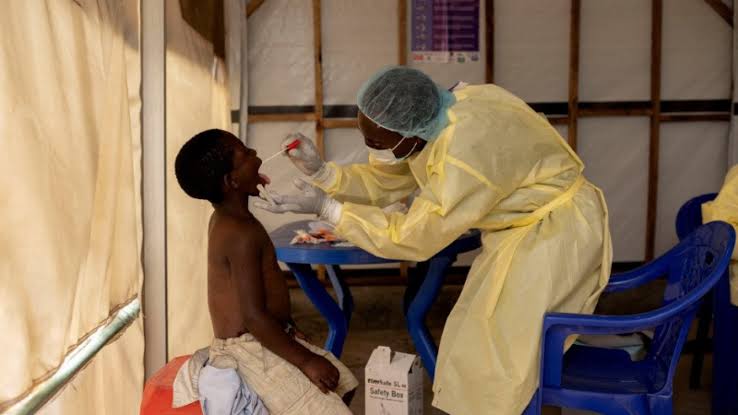Africa CDC Warns of Triple Health Crisis as Mpox Surges in Uganda
The Africa Centres for Disease Control and Prevention (Africa CDC) has raised alarm over a growing public health emergency across the continent, with concurrent outbreaks of Mpox, cholera, and climate-induced disasters overwhelming national health systems.
Speaking during a media briefing on Thursday, Africa CDC Director-General Dr Jean Kaseya identified Uganda, the Democratic Republic of Congo (DRC), and Burundi as current epicentres of the Mpox outbreak. He revealed that Uganda alone accounted for 50% of Africa’s Mpox cases in the past six weeks.
“Uganda has vaccinated over 20,000 people within one week after receiving 100,000 Mpox vaccine doses,” Kaseya said, but noted that challenges remain in contact tracing, case detection, and follow-up, particularly in sexual networks contributing to the spread.
Since 2024, Africa has recorded 117,678 suspected and 26,927 confirmed Mpox cases. More than one million doses of the Mpox MVA-BN vaccine have been deployed to 10 countries, but testing remains limited, with fewer than half of suspected cases tested.
A socio-behavioural study is currently underway to better understand Mpox transmission in high-risk urban and semi-urban areas like Mbarara and Masaka cities in Uganda.
Beyond Mpox, cholera outbreaks driven by climate shocks such as flooding and cross-border insecurity are escalating in Angola, South Sudan, and the DRC. Angola has recorded 10,949 cases and 408 deaths, while South Sudan reported 18,624 cases and 397 deaths in 2025 alone.
In the DRC, recent torrential rains submerged health facilities, disrupted utilities, and displaced thousands, compounding the public health crisis.
“Africa is facing multi-layered emergencies. We must urgently invest in resilient health systems, empower national public health institutes, and rethink how we finance healthcare,” Kaseya said.
The Africa CDC is now pursuing a strategic reform under the banner “Rethinking African Health Financing in a New Era,” which aims to strengthen domestic health financing, promote innovative funding models, and prioritise accountability and results-driven spending.
“We appreciate our partners’ support in vaccine delivery, but Africa’s health systems need more. We must act swiftly to decentralise testing, strengthen labs, and close operational gaps. Africa’s health cannot wait,” Kaseya concluded.
Mpox, a viral disease spread through close contact, caused over 59,000 reported cases and 1,164 deaths in 20 African countries in 2024. The World Health Organization (WHO) re-declared Mpox a global health emergency in August 2024, following the emergence of a new variant spreading from the DRC.


